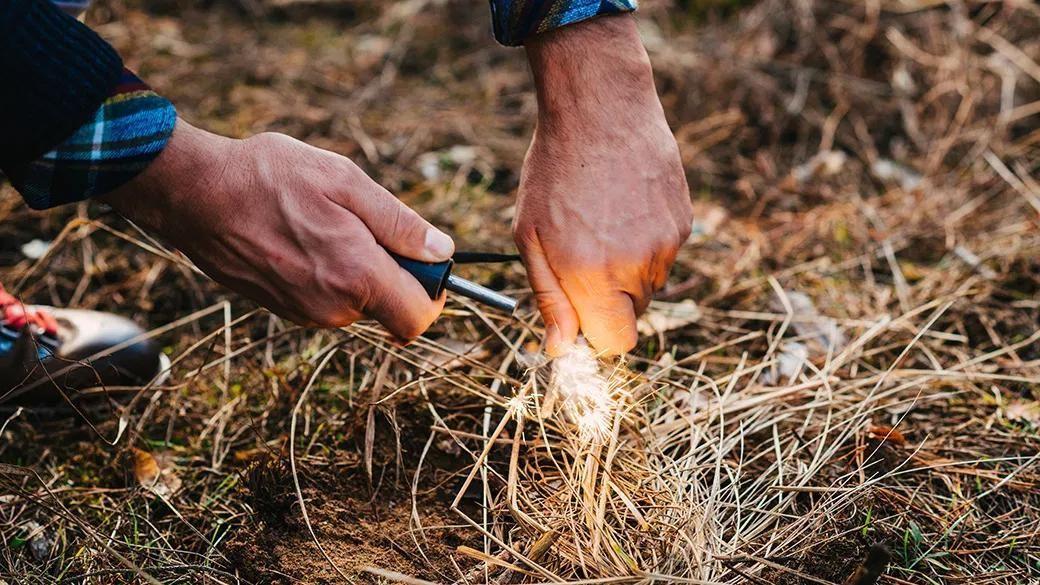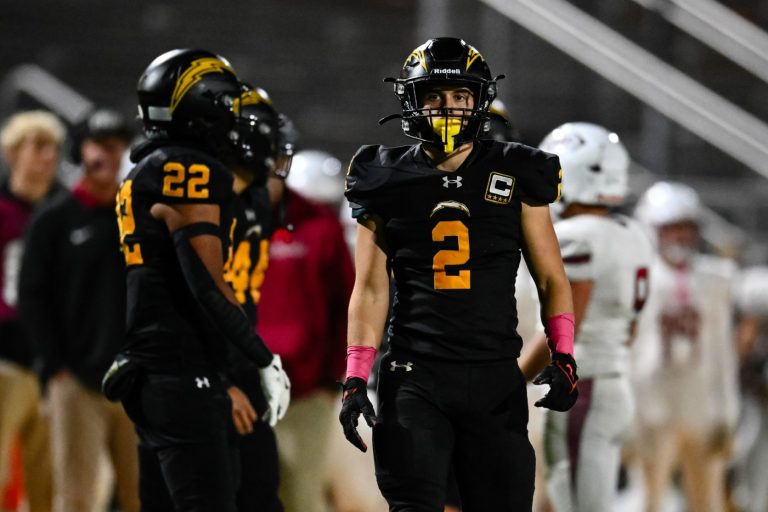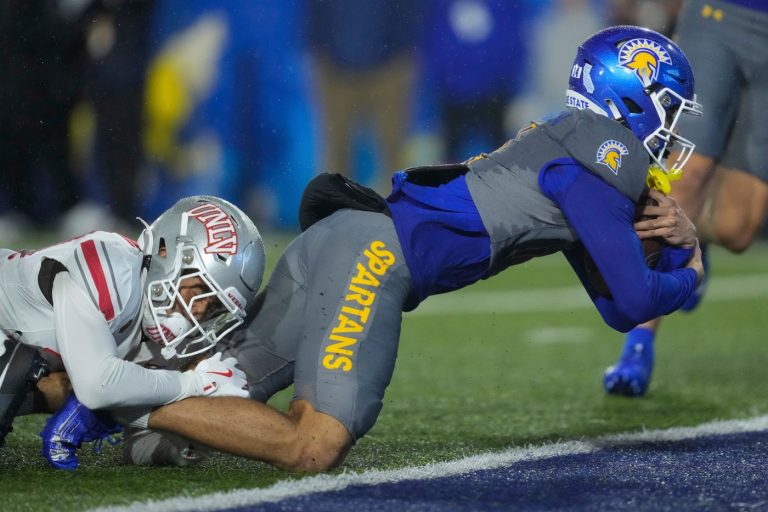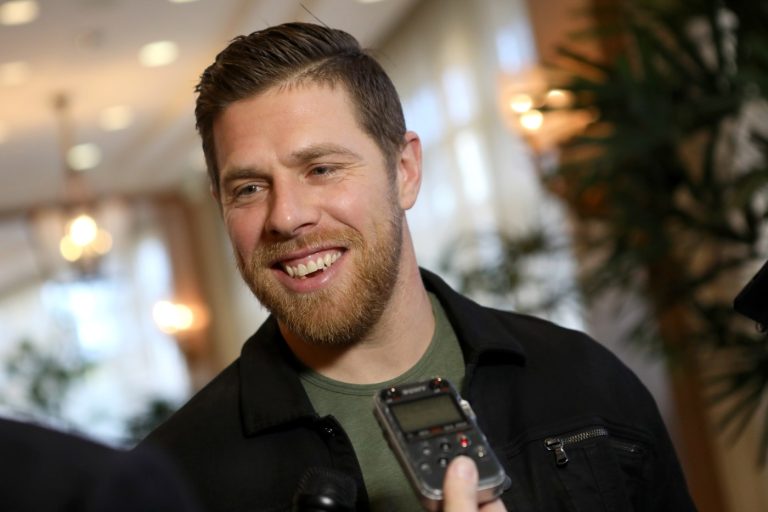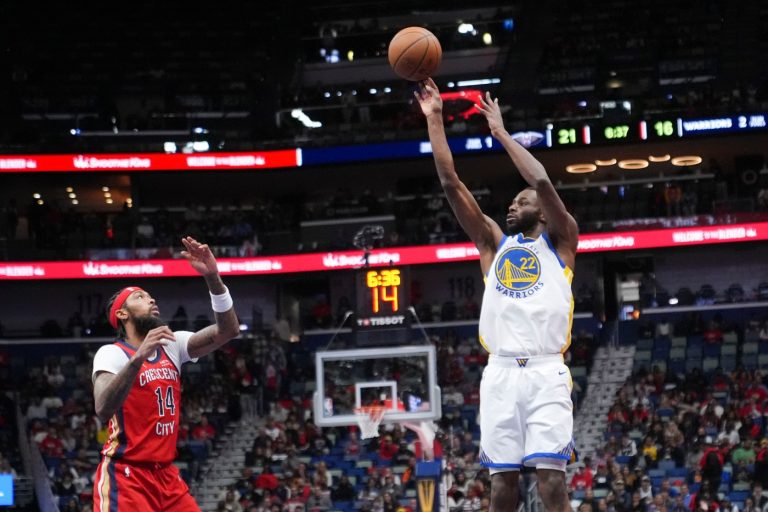Which campfire starter is best?
Whether you’re going on a weekend camping trip or a monthlong adventure in the middle of nowhere, a reliable, durable and easy-to-use campfire starter could be critical to your survival.
It’s also a huge bonus when your fire starter can do more than one thing, so you don’t have to bring as many items. The Gerber Bear Grylls Fire Starter is a top pick because it is compact, waterproof and comes with a survival guide.
What to know before you buy a campfire starter
What is a campfire starter?
To start a fire, you need oxygen, fuel and heat. A campfire starter creates the spark to ignite a flame. You can get a fire starter with the fuel source built into the heat source or get each separately.
Two quick, easy and accurate fire-starting methods with built-in accelerants are matches and a lighter. You can also get a flint and steel or a ferrocerium rod and striker, which take a little more work to get a fire going but are more durable, naturally waterproof and can light more fires than the other two methods combined. Some struggle with them because they require added accelerants, but those are ample, lightweight and easy to pack.
Types of campfire starters
Most professional survivalists suggest carrying at least one backup campfire starter in case the first fails or gets lost. If you want to be extra safe, take two backups. There are four types of fire starters for you to consider:
Matches: These small sticks are coated in combustible material that ignites when hit against a strike pad. They come in standard and waterproof varieties.
Lighter: These can be electric- or butane-based. They create a flame with the press of a wheel or button.
Fire piston: This is also known as a slam rod fire starter and comes with a rod, tube and tinder. Tinder is placed at the bottom of the tube and ignites when the rod is slammed into the tube.
Flint and steel: A ferrocerium rod and striker are in the same category and work the same way. When you strike the flint or striker against the steel or rod, a fire-igniting spark erupts and lands in an accelerant, which creates a flame.
Campfire accelerants
Fire accelerants, also known as flame extenders, are crucial as they take the flame or spark and turn it into a stable, roaring fire. They are required when your heat and fuel sources are separate. However, since they simplify the campfire-building process, many also use them with matches and lighters. There are nine types to consider:
Birch bark
Duct tape rolled up
Magnesium shavings
Wax and sawdust in cubes or cups
Cotton balls dipped in hand sanitizer
Cotton balls dunked in petroleum jelly
Cotton disks coated in wax and an accelerant
Wax- or Chapstick-doused rope or twine
Proprietary blends, such as Pyro Putty, Fireflame and Fatwood
What to look for in a quality campfire starter
Reliable
Because you’re not apt to have many backups, your campfire starter must be reliable. The best way to ensure its dependability is to get one that can withstand the elements and is labeled windproof, dustproof and waterproof.
Small and lightweight
While a lighter and fatwood can create a robust fire, they are not ideal if your campsite requires a hike and you need to carry them on your back with your other essentials. The best campfire starters are small, lightweight and won’t create bulk in your pack. Keep your heat source small and your fuel source even smaller.
Multipurpose
Consider the other tools you need while camping, such as a safety whistle, flashlight and survival guide, then try to get them in one purchase. While add-ons mustn’t come at the cost of a quality fire starter, space is precious when camping, and it’s helpful when each item can do multiple things.
How much you can expect to spend on a campfire starter
Depending on the brand, materials and included items, they range from $10-$50, with an average price around $10-$20.
Campfire starter FAQ
Is getting a flint and steel rod with a large strike capacity good?
A. Strike quality is more important than strike quantity. Fire steels that can withstand a lot of strikes are typically made from harder materials that don’t chip away easily, which generates less spark. You want one from softer materials that can create a larger spark, increasing your chances of success on the first strike.
What’s a good way to ensure you’ve bought the right fire starter?
A. Test it at home. It’s vital to test all camping essentials in a controlled environment before depending on them to work in the wild.
What’s the best campfire starter to buy?
Top campfire starter
Gerber Bear Grylls Fire Starter
What you need to know: This waterproof all-in-one kit has an attached safety whistle and other bonus tools.
What you’ll love: It comes with a ferrocerium rod, metal striker and an airtight container to secure your items. It also includes a survival guide, and the container has an attached lanyard you can use to place the kit around your neck for quick access.
What you should consider: Some reviewers said the kit is slightly bigger than they hoped it would be.
Top campfire starter for the money
Uco Stormproof Match Kit with Waterproof Case
What you need to know: These matches stay lit no matter what you throw at them.
What you’ll love: This set comes with 25 matches that can burn up to 15 seconds, three strikers and a waterproof case. The matches are windproof, waterproof and dirtproof. The flame stays lit, even when fully submerged in water.
What you should consider: Some people reported that the bottom stems on the matches are a bit fragile.
Worth checking out
Suprus Waterproof Lighter Three Modes
What you need to know: This windproof lighter is ideal for short trips and longer ones if you have access to a power source.
What you’ll love: This waterproof lighter comes with a wrist lanyard, a safety whistle and a built-in flashlight with three modes. It also has a USB charging cable and charges in about 1.5 hours. It’s butane-free and can work in any weather.
What you should consider: There were mixed reports regarding its battery life, which is contingent upon how often you use it.
Prices listed reflect time and date of publication and are subject to change.
Check out our Daily Deals for the best products at the best prices and sign up here to receive the BestReviews weekly newsletter full of shopping inspo and sales.
BestReviews spends thousands of hours researching, analyzing and testing products to recommend the best picks for most consumers. BestReviews and its newspaper partners may earn a commission if you purchase a product through one of our links.
